#Star Wars: The Roleplaying Game (FFG)
Explore tagged Tumblr posts
Text

Star Wars: The Roleplaying Game (FFG) - Edge of the Empire - Suns of Fortune - CR92a Assassin-class corvette attacks a Zann Consortium PB-950 patrol boat
#Star Wars#Star Wars: The Roleplaying Game#Star Wars: The Roleplaying Game (FFG)#Edge of the Empire#Suns of Fortune#CR92a Class#Assassin Class#Corellian Corvette#Zann Consortium#PB950 Class#Patrol Boat#Sci-Fi#Mecha#Spaceship#FFG#Fantasy Flight Games
95 notes
·
View notes
Text

Star Wars: The Roleplaying Game (FFG) - Edge of Empire - Trandoshan Explorer
#Star Wars#Star Wars: The Roleplaying Game#Star Wars: The Roleplaying Game (FFG)#Edge of Empire#Trandoshan#Trandoshan Explorer#Sci-Fi#FFG#Fantasy Flight Games
68 notes
·
View notes
Text
Star Wars RPG: I got to roleplay again ❤️ Eshka Kith'lya, my lovely doctor and diplomat bothan, pissed of the senate by becoming the face of justice & progress and galaxy wide darling of the People. She has had good reputation, some notable appearances, but this was big, and she nailed it, while also humiliating the former Imperial General who has had some unfortunate incidents with us.
This can only go well, right?
We finally had the big fight we've been preparing for over the season, and it was awesome! We still have few sessions in this season, aftermath and celebrating the victory. Our main ship is almost ready and the new jedi order is starting to take form. I love this game, I love our group, my friends and family, I love the story we are creating, and I love how free we are in the game. Together we decided we want to get a ship and become a nonprofit diplomatic organisation, helping solve things through discussions, but we also have few Force users, who are creating their own new Jedi order inside our organisation. Our mission is to help those in need and meddle in everything.
#star wars#star wars roleplay#star wars roleplaying game#star wars rpg#edge of empires#star wars ffg#bothan
1 note
·
View note
Note
Hi! You have a really cool blog and have been getting me into indie RPGs, so firstly just thanks :) But anyway, any RPGs that could work well in a play-by-post format, even if you'd need to homebrew or hack it a little? Online friends on the other side of the world are a beast.
THEME: Play-by-Post.
Hello friend! So I haven’t done a lot of play-by-post games, but I’ve tried it out once or twice. I think in many cases, you might not even need a ttrpg in order to do online roleplay; I’ve played in Star Wars pbp that used the FFG system, but I’ve also seen Star Wars forums that are completely text-based and host their own wikis on information that’s been established in their world to keep track of what's happened so far.
That being said, I can understand having a framework to help guide you, especially if you enjoy the structure of traditional ttrpgs. The possibilities of playing these games by post are vast, although I'm noticing that most of the old forums have migrated over to Discord these days - and Discord makes things like rolling dice so easy, so it makes sense!'
If you're converting a ttrpg that uses dice into something that is play-by-post, you'll have a dice-bot, while if you're using a game that has no dice, or is a little more free-form, then that's one less mechanical piece that you'll need to worry about. Other considerations will likely be things like where you put character sheets, whether the game will be organized in a West Marches format or more like a traditional story, and how often players will be expected to write up what they're doing.
All of this is to say that the following recommendations are just the tip of the iceberg, really. Some of these are designed for play-by-post, while others are just games that I've seen out in the wild before.
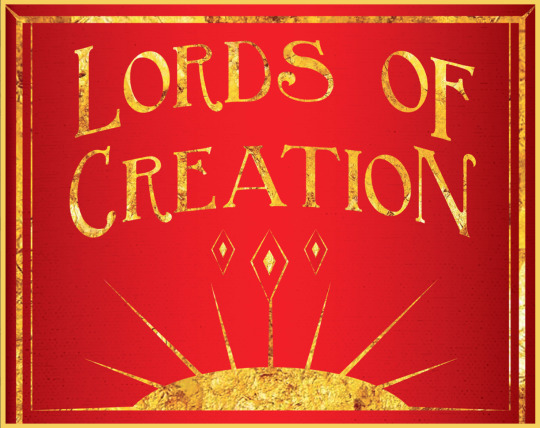

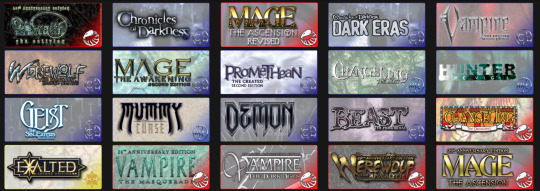
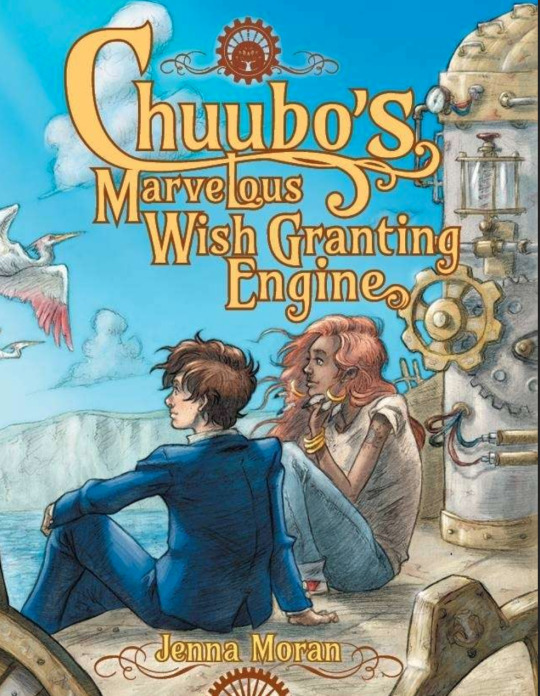
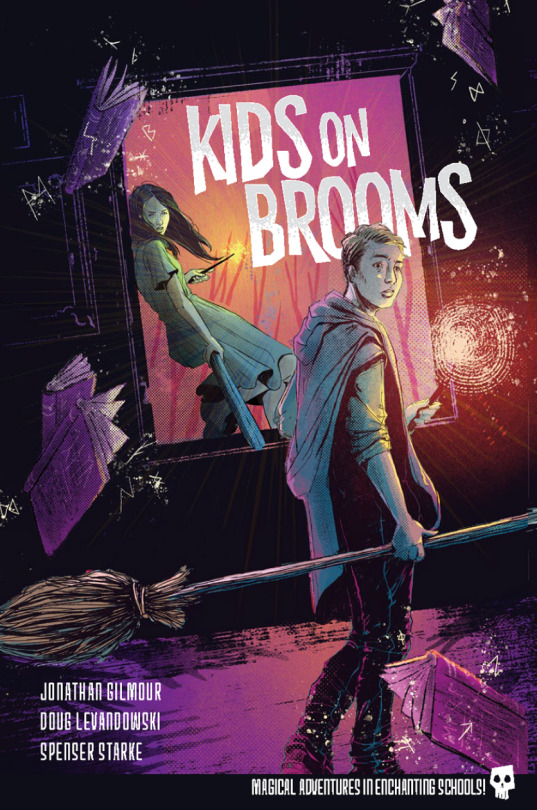
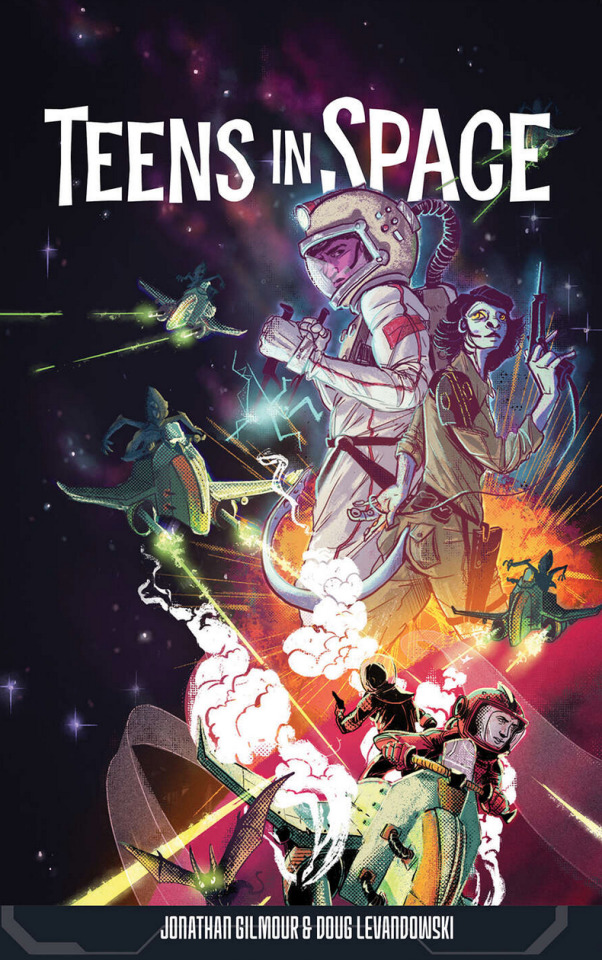
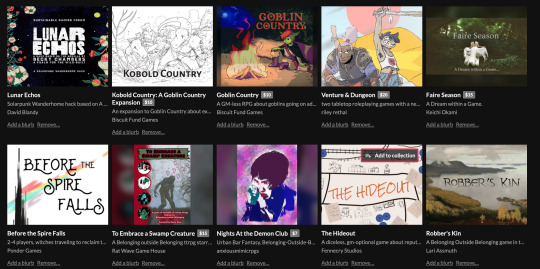
Lords of Creation, by Five Points Games.
Lords of Creation is a rules-lite cooperative world building game with a focus on the Divine. Players create Divinities and populate a fresh, open world with a focus on myth telling and lore. The game is intended to be played via Play by Post, allowing players to run multiple societies, factions and elements at once.
Five Points Games clarifies in the game text that this game isn’t really their brainchild, but rather the culmination of play-by-post roleplaying on old WOTC forums. It’s a game about divinity and world creation, and each “turn” of the game takes place over the course of a real-time week. I think this gives a lot of time for each player to be involved in each step of the game, as well as providing in-universe ways to manage players who no longer participate, or who need to stop playing for one reason or another. Lords of Creation is also GM-less, allowing everyone to participate in a partial player, partial GM-style role.
Yowl! What A Strange Hotel, by Zargo Games.
Yowl! is a reviewing service that allows customers to rate establishments from 1 to 6 stars and tell the important details of their stay in a handful of paragraphs. This game is about telling the story of a particular establishment, in this case a hotel, through a series of Yowl! reviews. Reviews are from a different perspective each time, and should reveal something interesting and unusual about the hotel. Is there a dark secret that the hotel is hiding, or is something even stranger going on?
Yowl! looks to be designed for a shorter length of play. Together you will create a strange hotel, and then take turns leaving reviews, letting little pieces of information contribute to a larger story-line as you go. I think this is a relatively simple way of playing by post, although it relies mostly on each player’s creativity, as the game doesn’t come with any prompts.
World /Chronicles of Darkness Games (currently published by Onyx Path).
The World of Darkness franchise is a beast, and has been fuelling play-by-post form play for decades. There’s a number of reasons this collection of settings has been so popular.
It’s focused on factions and politics, which means that a large number of people can join in and fill out various political groups and start plenty of drama with each-other. Because the drama is so juicy, dice rolls can fade into the background. (I don’t think that stops you from being able to use it in a small group though!)
It’s got oodles and oodles of lore, but it’s set within the real world, so players can use something like Google Maps to create a fantasy version of a real-life city, and it provides a solid frame of reference.
It’s been around for a long time, which means that there is so much in terms of resources and advice that you can look at, such as the Onyx Path forums, or the WoD Discord Server.
The Chronicles of Darkness games are specifically designed to be cross-compatible. Changelings, Hunters, Vampires, Werewolves and more can all interact in the same universe - as long as the GM is on board with it. Most of the base rules are the same, with some tweaks for each splat, so if you have some players that really want to play a werewolf, while others are more interested in becoming mages, you can combine the two no problem!
Chuubo’s Marvelous Wish-Granting Engine, by @jennamoran.
The Chuubo’s Marvelous Wish-Granting Engine RPG is a dice-less RPG from Jenna Katerin Moran, author of the well-regarded Nobilis and an important contributor to Eos’ Weapons of the Gods and White Wolf’s Exalted RPG.
Pursue fabulous quests. Progress through Issues. And find a place for yourself in a world of breathtaking beauty.
Chuubo’s Marvelous Wish-Granting Engine doesn’t require dice, but rather asks you to role-play through scenes and spend points in line with your character quests. You gain XP for the experiences your character has, the way they interact with other characters, and the steps they take to move towards completing their quest. Because character advancement is dependant on role-play, I think Chuubo’s is a great way to prompt interactions in a play-by-post setting, and character advancement is both a compelling reason for folks to participate and an engine that feeds the storytelling machine.
The rulebook for this game can be a bit of a big read, but there’s a starter adventure included, with pre-built characters to help you get going.
Kids on Brooms and Teens in Space, by Hunters Entertainment.
Kids on Brooms is a collaborative role-playing game about taking on the life of a witch or wizard at a magical school you all attend that uses the “Powered by Kids on Bikes” system, first used in the award winning Kids on Bikes. Kids on Brooms is a rules-light storytelling system that takes you on magical adventures.
Teens in Space is a space opera RPG that uses the “Powered by Kids on Bikes” system. Teens in Space is a rules-light storytelling system that takes you into the cosmos for adventure and profit.
Both of these games use the teen-horror inspired game Kids on Bikes. Since these games rely heavily on polyhedral dice, I think setting up a discord server that also has a dice bot is the way to go with this one. You can choose a character from archetypes provided in the books, or create your own piece-by-piece. Different locations could be represented by different Discord channels, and since these games seem to work really well in regards to mysteries, I think a GM could focus on putting clues in different locations for characters to find, allowing the characters to slowly piece together a mystery over time.
I think Kids on Bikes is a kind of game that is going to require a lot more work to replicate as a play-by-post game than some of the other games on this list, because characters will need to roll dice in order to get things done, and it's best used in a small group. However, one thing I think really works well for these systems is the relationship questions that you roll on to determine how your characters relate to each-other. It gives you a connection right from the get go, and it can give the players something to work with while they're finding their feet.
Belonging Outside Belonging Games.
As a rule, Belonging Outside Belonging games don’t require dice, and as a common feature, BoB games don’t usually require GMs either. Characters are typically organized into playbooks; tropes or classes or collections of abilities that both define characters and make it easier for new players to find their rhythm. These playbooks will come with three categories of abilities: things that you can always do, things that require a token to activate, and things that reward you with a token when you do them. These games also usually include the setting itself as a playbook, or a divided series of responsibilities handed out to each player.
I can imagine a play-by-post form of game moving between descriptive scenes and active scenes, with players alternating between introducing elements of the setting / narrative obstacles; and describing how their characters react to these new events. (I've also seen this kind of thing happen on a Wanderhome server.)
Some Belonging Outside Belonging games that sound interesting to me are Lunar Echoes (a solar punk hack of Wanderhome), Geese at the Beach (chaotic water fowl looking for shines), and Capitalites (urban Asian young people trying to figure out who they are).
I hope you found this useful!
69 notes
·
View notes
Text
Siren - Lawful Nuisance



Customary pinned ‘about me’ post
About Me:
A tired queer that is somewhere between 30-40 years old. What little precious free time I have is split between making poor decisions and playing RPGs both tabletop and digital. I work in software.
Pronouns: She/they, for your convenience.
Rent-lowering hot takes before you decide to move in or not:
Paradoxically, you must have some dialogue and understanding with 'the enemy' to truly find solutions & violence is very often said solution.
Fiction is fiction. You are capable of closing a tab and closing a book. If you attack someone directly for the media they like, you aren't mature enough to be online.
ACAB applies to real life. If you're one of those people that calls paladins/knights/typically-lawful roles in rpgs "cops" unironically then I think you're an idiot. Anyway, ACAB.
The right to self-identify and assert one's identity applies to all. There is no invalid gender or sexual identity should at least a single person truly and genuinely believe in it.
But specifically, trans rights are human rights. Transphobes and TERFs are scum beneath the boots of a brighter future.
Interests
Pathfinder (Both editions, the Owlcat games, etc)
Xenoblade Chronicles (1, 2, 3 and X)
Pillars of Eternity (1 and 2)
Star Wars* (Like any fan, you know what that * means)
Stories with complex intersections of morality and politics
Stories about duty and sacrifice; knights
Rollercoasters and theme park technology (This counts as train autism surely)
Technology and tech-politics (Though recently it's more infuriating than not)
Tabletop roleplaying games and GMing styles/tools/resources (PF2e, PF1e, SW FFG, The One Ring 2Ed, Fabula Ultima...)
Fanfiction (though that spark has dwindled)
Ask Box
It's there. It's open. Submit ask games or writing topics. Ask me about GMing. Ask me about tech. Ask me about whatever. It's open.
My OCs
Not kept up to date, but art and blurbs about them can be found on my toyhouse.
My Socials
This
Bsky: @siren1101.bsky.social
Toyhouse: https://toyhou.se/silverSiren1101
AO3: https://archiveofourown.org/users/SilverSiren1101
8 notes
·
View notes
Text

#licensedRPGs2015 Star Wars: Force and Destiny Core Rulebook
The last of Fantasy Flight’s trilogy of core books for Star Wars. Force and Destiny focuses on the same original trilogy period, but allows you to play a force sensitive character trying to avoid persecution and death at the hands of the Empire. Like the previous two, SW:F&D uses the same core mechanics and released a beta version and beginner box prior to the core book.
Also like the previous two it has a host of micro-transactions with 42 different specialization decks for the different character paths. Those come from the main book as well as the splat books which drill down on particular character types (like Disciples of Harmony which covers Counsular characters and Endless Vigil for Sentinels). Beyond these career sourceboks, FFG released a few dedicated F&D adventures and Nexus of Power which covers Force-empowered sites.
The last releases for the whole Star Wars line came out in 2020. Notably almost nothing was done with the new trilogy beyond a beginning game based on the Force Awakens done in 2016. Like the rest of FFG’s rpg portfolio, the Star Wars Roleplaying Game is now under the Edge Entertainment umbrella. Notably the product listings presented on their site do not include the large number of character decks. I suspect, unless there’s some kind of PoD program, those are long gone.
8 notes
·
View notes
Note
🎲
🎲 - Do you have a favorite board game?
I guess tabletop roleplaying doesn't count? A GM screen is kind of a board, isn't it? :P I don't actually play all that many straight board games, now that I think about it - I have a friend at work who's borderline obsessed with them, and another friend who I do a stream with who is . . . also, obsessed with them, huh, noticing a theme here. I guess if pressed I would have to say Scrabble? Yeah, I know, really basic answer for a writer who plays Hank McCoy, but I do genuinely enjoy it!

If we're allowing tabletop roleplaying games, then I mostly play Star Wars FFG/Genesys, Star Trek Adventures, and Marvel Heroic Roleplaying. :)
2 notes
·
View notes
Text
Yes!!! I want to continue this train.
- I love the XP system in Cypher; I think it offers players a lot of flexibility and control over how they grow.
- I love the Theorize roll in games like Apocalypse Keys and External Containment Bureau. I think it allows the entire table to experience a form of discovery, including the GM.
- I love the Cinematic roll from Star Wars FFG. I think it helps the group abstract out events that are less interesting or that need to be sped up for timing's sake.
- I love the Stress mechanic that exists in a lot of Forged in the Dark games. I think it's an excellent player resource that has the opportunity to generate interesting roleplay events.
- I love the Breath mechanic in Breathless; it allows the characters to re-set their character abilities but at the cost of letting things get worse, and I think it really fits a horror-style game.
- I love the pauses in between action scenes in Lady Blackbird. I think it is excellent for incorporating more intimate scenes and fleshing out characters, and it helps pace a one-shot really well.
Anyway instead of constantly making the world's silliest people mad with my mild criticisms of D&D I'm going to say some positive things... about games besides D&D.
I love the tables in Rolemaster, like you've probably heard this before but the random tables in Rolemaster are basically little story generators.
The system of strings in Monsterhearts is probably one of the best if not the best social mechanic ever.
I love how Errant empowers players with the ability to make actual tactical choices about how their characters move around in places.
I love how weird Troika!'s character options are. I'm playing a weird muck wizard right now. He can cast a spell that literally ties some tongue in knots.
I love the presentation of everything in Break!, it's an absolutely beautiful game and I can't wait for the physical book to arrive so I can show it off to my friends.
I love the investigation point/Eureka! mechanic in Eureka, it ensures that characters will at least have some clues available to them provided they're willing to do the work, also there's so many fun traits that alter the flow of investigation points in fun ways.
2K notes
·
View notes
Photo





More out of context memes for our Tie Fighter pilot Campaign.
#Star wars#the mandalorian#interceptor#star destroyer#cop#rpg#fantasy flight games#ffg#roleplay#science fantasy#science fiction#pirate#galactic empire
8 notes
·
View notes
Text

Star Wars: Roleplaying Game - Collapse of The Republic - Providence class Dreadnaught by Lukasz Jaskolski
#Star Wars#Star Wars: Roleplaying Game#Collapse of the Republic#FFG#Fantasy Flight Games#Providence Class#Dreadnought#Sci-Fi#Mecha#Spaceship#Lukasz Jaskolski#CIS#Confederate of Independent Systems
80 notes
·
View notes
Text
So the first thing I think of is AGON, by John Harper. In a battle in AGON (similar to other contests in the game), all of the players roll their dice at the same time. This is because the outcome of the battle is more important than the play-by-play.

There are multiple rolls, but the goal is to see who did the best in any given roll. To determine what dice each player rolls, the players have to decide what their characters are doing to achieve victory. They could be engaging in bloody combat (Blood & Valor), but they might instead be devising a trap (Craft & Reason) or distracting the giant long enough to have them forget about another threat (Arts & Oration.) How exactly that plays out is determined after the player rolls.
I really like this way of organizing combat because not only does it resolve actions fairly quickly, it also eases new players into narrating their actions, because they can rely on their best stat and then use the result to help divine what their actions might be. Roll high? You probably devised a trap that went off at just the right moment, or found a critical weakness. Roll low? Perhaps you misunderstood the enemy’s feint, or perhaps one of your travelling companions struck the killing blow just as you were setting yourself up.
Another place I’ve seen a similar approach to combat is in the way the Heroes of the Hydian Way played their first season of FFG Star Wars - specifically Brent, the player for TV-93. FFG Star Wars has an initiative system and a mode of combat that can be just as play-by-play as many other traditional roleplaying games - but that’s not the only way you can navigate combat. This system uses a roll called a Cinematic Roll, and I think it directly influenced the way TV’s rolls were described.
The Cinematic Roll is for places where observing what happens every round isn’t engaging or exciting for the players. Instead, the group each determines what the players (and their allies) contribute to the scenario, while the GM determines what their foes (or the situation) contributes. These contributions take the form of dice, with different colours and faces depending on what they represent.

Some dice are added through core skills, others through situational bonuses, and some are “upgraded” due to special character abilities. Rolling grants a number of successes or failures, as well as a number of advantages or threats. On top of these results, the group could also attain a Triumph and/or a Despair. As a result, most results are layered: a failure with a Triumph is bad with a silver lining, while a success with many threats is enough to get you through, but doesn’t make the situation any easier.
When Brent made a roll, he would describe the outcome according to where the successes and failures came from. If the success came from his skills, TV proved to be competent at what he was doing. If the success came from the dice an ally gave him, he got by only because they gave him critical help. If the success came from a Force Point, he came through because of pure luck (or, y’know, the Force).
I can see using this mode of play with FFG Star Wars, or anything designed in the Genesys system.
Finally, don’t sleep on PbtA games! There are a couple different ways you can approach combat in PbtA. Apocalypse World and Monster of the Week give you hit points to track and damage to deal, but there isn’t really an initiative order - you’re more likely to go when the fiction demands. This can be a bit of a learned skill: a play group with a mix of quiet and exuberant players may need to actively ensure they’re taking the time to ask each person what they’re doing, but it’s also possible that each character’s action ends up affecting another person, regardless of whether or not they wanted to.

Then there’s games such as MASKS, Apocalypse Keys, and Thirsty Sword Lesbians, where the damage that’s done is emotional - there’s no way to track hit points, and there isn’t really a way for your character to die. The stakes are different: in MASKS it’s the characters’ identity, in TSL, it’s the player’s heart, and in Apocalypse Keys, it’s the character’s ability to hold onto their humanity. As a result combat is less about who gets killed, but who becomes less confident, who lets slip something they shouldn’t, and who goes too far. I think this way of structuring combat certainly makes initiative less of a priority - people want to see what happens next, instead.
I hope you found this helpful!
A friend just told me that he has a player in his group that doesn't really enjoy turn-based combat, do you have an recommendations for fantasy RPGs that have more abstract combat?
#mint speaks#sorry it took me a while to address this#I had a really long backlog#indie ttrpgs#tabletop games#abstract combat#game recommendations
147 notes
·
View notes
Text

Star Wars: Roleplaying Game: Age of Rebellion - Onslaught at Arda - Disembarkation by Jake Murray
#Star Wars#Star Wars: Roleplaying Game (FFG)#Age of Rebellion#Onslaught at Arda#Disembarkation#Jake Murray#Galactic Empire#Stormtrooper#Sci-Fi#FFg#Fantasy Flight Games
41 notes
·
View notes
Text
I thought roleplaying games were about fantasy and escaping reality, but here we are, trying to solve the question of how we fund our organisation and have enough food & water for our spaceship's crew...
#rpg story#rpg stuff#game story#edge of the empire#star wars ffg#star wars rpg#roleplay story#roleplaying#ttrpg#tabletop rpg#tabletop roleplaying
2 notes
·
View notes
Note
🌠 🔥
🌠 A game with a mechanic I love.
Okay, this is hard. I have a lot of mechanics that I think are really cool. I could talk about Clocks from Forged in the Dark Games, which really heighten the pressure and keep the players on a timeline. I could talk about the Theorize Roll from games like ECB and Apocalypse Keys, which allows the players to generate the mystery organically, rather than expecting the GM to figure it all out. I want to give an honourable mention to Troika's initiative mechanic, which has the GM draw random tokens from a bag that represent players and NPCs.
I think that instead I'm going to focus on a mechanic that has a different name depending on the system it's in. Willpower (WoD), Player Intrusions (Numenera), Tokens (BoB), Force Points (Star Wars FFG), Momentum (Scion), Fate Points (FATE). You get the picture.
Basically, it's a personal or communal pool of an abstract resource that allows the players to tweak fate, add a narrative detail, or re-try a failed action.
It's such a ubiquitous thing; I think every game has it in some shape or form. It's a nod towards the players, telling them that they have the ability to change the story. It's not all up to the GM. Perhaps that's supposed to be a given but I think it's something that seasoned role-players take for granted, something that someone new to the table might not realize they have the power to do. It reminds us that we are telling a story together, and that's my favourite part of TTRPGs.
🔥 A game designer whose whole design corpus I admire.
Gotta be John Harper. Their games got me into roleplaying, with the extremely easy-to-learn Lady Blackbird. One year later, a friend of mine introduced me to Blades in the Dark, and it took one read-through for me to fall in love with clocks. And then last year I picked up AGON and ran it and was impressed all over again. I haven't played Lasers and Feelings yet, but I have my eye on it and I have a feeling it will be a fun time.
14 notes
·
View notes
Link
Woaaaaah! What's this guys?! So, this is a project Including myself (LE-VO 3), Jake Lucas (Game Master), Evan Boshi (Bosh Trebia), Jon Barcelo (Tumassk), and Alfonso Giansanti II (Flynt Kross). Roll One is an actual play podcast set in everyone's favorite galaxy far far away. We all play the entire cast of characters from the heroes to the villains, from bartenders to nameless soldiers and street urchins. Roll One uses the Fantasy Flight Games "Edge of the Empire" (and more) rules set and is one heck of a hoot! There's action, drama, intrigue, and of course a bunch of laughs. This is episode one of many more to come and the journey begins on the planet Bestine. Please do me and everyone included here a huge favor by subscribing and downloading "Lockdown on Bestine Pt. 1" and if you're picking' up what we're puffin' down then give this a like and a reblog too! Every time those arrows turn green is a big help! P.S: Do you like tabletop role playing and performing? We're putting together our session guest list now so let any of us involved know of your interest and we'll be more than happy to have you on in the near future!
#roll one#roleplay#roleplaying#rpg#tabletop#dice#improv#comedy#podcast#star wars#roleplaying game#ffg#edge of the empire#force and destiny#share this#lakejukas#actual play
14 notes
·
View notes
Text
Say it with me:
IF👏YOUR👏PLAYER👏CHARACTER'S👏ONLY👏DEFINING👏TRAIT👏IS👏THAT👏HE👏STEALS👏STUFF👏ALL👏THE👏TIME👏THEN👏YOU👏HAVE👏MADE👏A👏BAD👏 CHARACTER👏AND👏NEED👏TO👏LEAVE👏MY👏TABLE👏
#rpg#ffg#edge of the empire#star wars#roleplaying game#tabletop rpg#that guy#i really hate these types of characters#they are disruptive#they are not fun to work with as a player#they are not fun to work with as a gm#about the only thing they are useful for is you can easily disguise surprise plot threads as things to steal#addendum#the only time#this is okay#is if you are actually playing as nobby nobs
3 notes
·
View notes